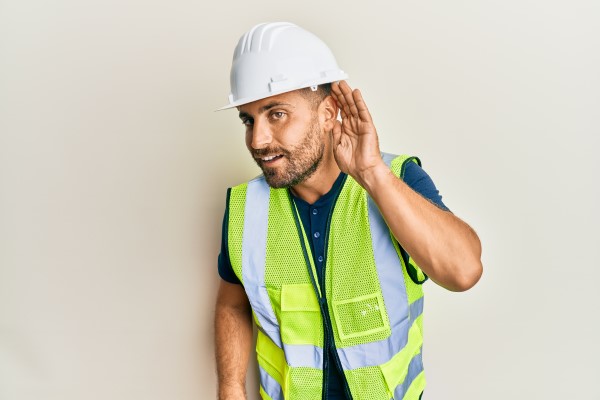When we listen, we learn, but it really is important to be properly heard. Safety isn't just about speaking up, it's about listening well too.

Knowing or feeling that something is unsafe is useful, and it's only by sharing this with the right people that it can become safe. That's clear. But the link between these is effective listening. When we listen, we learn, but it really is important to be properly heard.
If people aren't listening, it's harder to speak up. When someone listens, people will make the right call to report their concerns.
Research shows that for people to be motivated to speak up, they need access to someone who they believe will listen (such as an inclusive leader). And analysis of 172 fatal aviation incidents discovered that in 170 of them staff had raised a concern before the incident but it wasn't listened to effectively.
In other words, safety isn't just about speaking up, it's about listening well too. It's a dialogue, where questions are encouraged, and people's experiences and perceptions are valued.
Reporters to CIRAS confidential safety hotline always receive a response from the company their concern is for, and both reporter and company can ask each other further questions through CIRAS, because dialogue helps the reporting process.
If you raise a concern through CIRAS, the CIRAS reporting analyst will call you at a time that suits you to ask questions, to fully explore your concern on the phone and make sure the report they send the company captures everything. Conversation improves understanding. The CIRAS conversation allows time and space for careful and impartial listening. We listen to hear and not to react.
CIRAS protects your identity when sharing your concern with the relevant company, so the focus is on your concern and not you.
Safety consequences of not listening
Not listening well, and not being open to hearing challenge, can have serious consequences, as with the aviation incidents previously mentioned. Another example from the skies is the space shuttle Challenger disaster of 1986. Seven astronauts lost their lives after the project office '[failed]...to understand and respond to facts obtained during testing...[nor] responded adequately to internal warnings' (from the Report of the Presidential Commission on the Space Shuttle Challenger Accident). Pace of work and timing were factors, potentially affecting the space for listening.
The chair of the Nuclear Accident Independent Investigation Commission, Professor Kurokawa, cited reluctance to question authority as a contributor to the Fukushima Daiichi incident in 2011. There was unlikely to be a culture of listening, if so many people thought their concerns wouldn't be heard.
Corporate memory is a form of longer-term 'listening'. Closer to home in the rail industry, former Rail Accident Investigation Branch chief inspector Simon French drew a line from the 2016 Cardiff East Junction incident back to the Clapham accident of 1988, saying 'how easy it is to forget the lessons'. Raising concerns helps to build knowledge so that people can listen and learn in the future too.
How to be heard
If you feel that you're not being listened to, even if you have raised a concern before, there are ways to be heard that you might not have tried. Within your company, you can reach out to your line manager or supervisor, a site manager or a health and safety professional, or use other internal reporting channels.
Unions can provide a listening ear. And, of course, there is CIRAS confidential safety hotline too. Someone wants to know what you want to share, and someone will listen.
Find out more
Make the right call—more articles about listening well, raising concerns, and how to build a listening culture.
